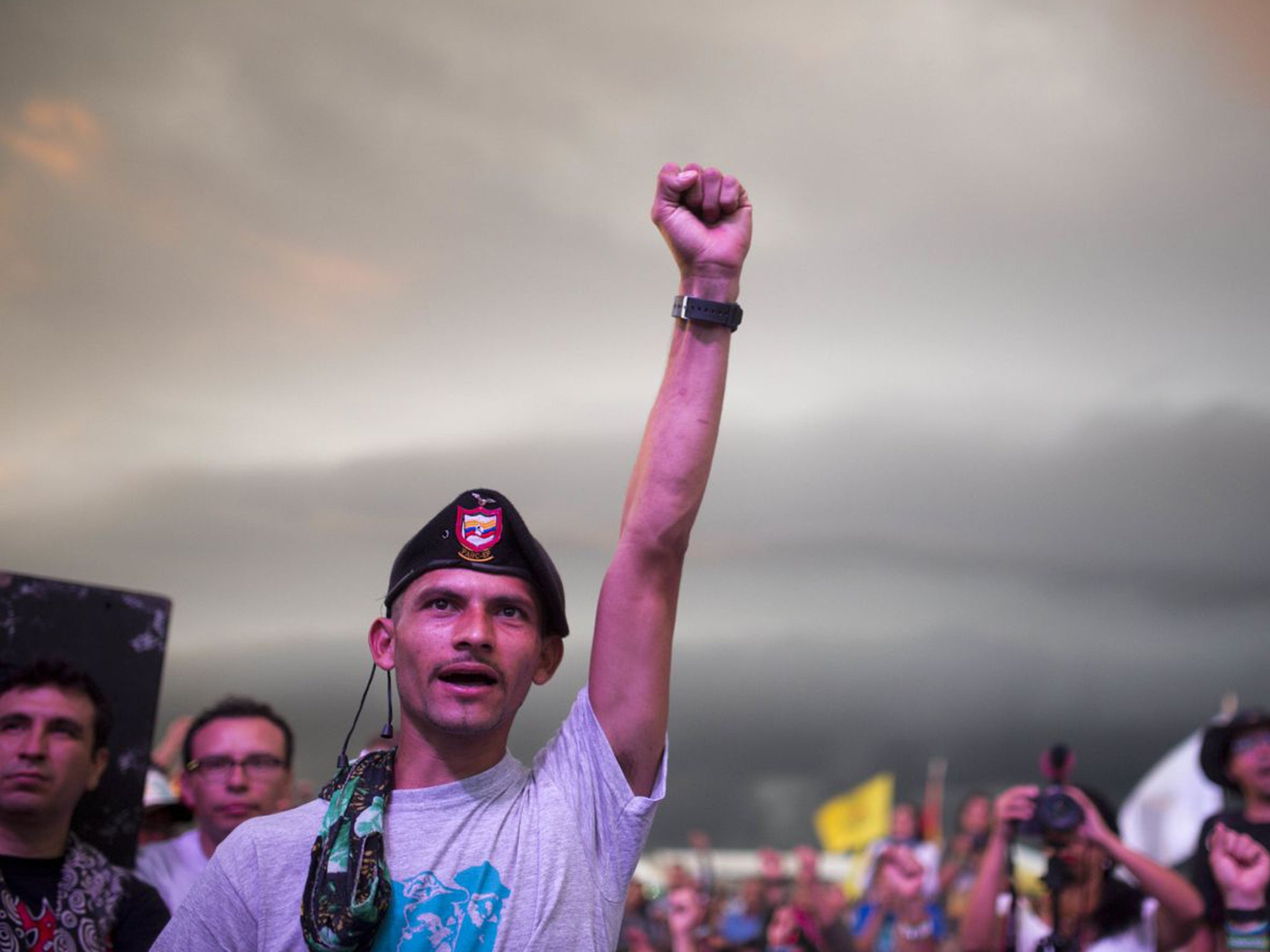Eventually Colombia, like Northern Ireland, will have to talk to its terrorists
Northern Ireland’s peace agreement, as with the Colombian deal, is far from perfect democratic politics. Allowing extremist groups a vested hold on jobs and power is not exactly pure – but it is better than the alternative


Should you talk to terrorists? The answer, at least so far as Colombians are concerned, is “No”.
Understandably enough, the Colombian people have narrowly rejected a landmark agreement between their government and the FARC guerrillas, a group that has murdered around 220,000 and displaced a staggering 7 million more during its half-century reign of terror.
Having grown up, literally, with the constant threat of bombings, assassination and kidnappings and their own war on terror, they did not see why this group – even though it now espouses peaceful means and aims – should not only join the democratic process but be given a guaranteed, and unelected, slug of seats in the Colombian parliament.
It was that fact more than any other factor that infuriated a suffering population. Appropriately they chose a democratic mechanism, a referendum, to protest.
It is difficult to blame them – except that the long history of dealing with terrorists tells us that, sooner or later, politics is usually the answer to ending violence. Channel hopping the other day I stumbled across the proceedings of the Northern Ireland Assembly. An uninspiring assembly member was making a dull speech about the roads in the six counties. She was from Sinn Fein.
It was one of the most beautiful of serendipitous political moments. Here, buried away on the BBC Parliament channel was a sight that would have been thought satirical not so very long ago. In its prosaic way, it was just as powerful and symbolic as the time ex-IRA Commander Martin McGuiness shook hands with the Queen.
Northern Ireland’s peace agreement, as with the Colombian deal, is far from perfect democratic politics. Allowing different groups a vested hold on jobs and power is not exactly pure. A permanent “power sharing” executive tends to institutionalise the politics of religion, nationalism and ethnicity, rather than moving it on to traditional class-based interests.
And yet, as they say, it is better than the alternative. Had the plans and the aspirations of the late Shimon Peres survived then something of the same might have happened in the Middle East. In Afghanistan and Iraq, the local parties there have had to do their best to rebuild their nations, with messy, ugly compromises and extremists part of the everyday currency of politics.
So why not, as Owen Smith notably wondered in the Labour leadership election, talk to Isis? The answer to that can only be pragmatic: that terrorists are only worth talking to if they share at least some cultural or political values with others.
These can evolve over time, and, as we see all too readily even in (relatively) peaceful Northern Ireland, armed groups can splinter and mutate. Yet time usually grinds down both sides so far that they decide that they cannot win their war, and sheer battle weariness drives the terrorists toward a different path.
That, sadly, usually involves terrorists first testing their opponents by ramping up the scale and horror of their crimes to test public opinion to the limit. When they fail, they, eventually, draw back. They decide they might not lose their war, but they cannot win it either. Then they go for the best deal they can.
That is what the IRA did, what the PLO did, and what FARC did too. It doesn’t change the past or mitigate the suffering they inflicted on others, but it does change the future.
FARC doesn’t want to go back to its unwinnable war, so let them talk about the state of the roads in Colombia.
Join our commenting forum
Join thought-provoking conversations, follow other Independent readers and see their replies
Comments